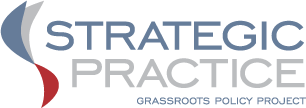Winning for Kids and Community
Teachers and their unions are on the front lines in the battle for the future of public education. And most of the time, they appear to be on the defensive. But there's good news, and lots of hope, coming out of Minnesota. The Saint Paul Federation of Teachers (SPFT) has managed to change the conversation, build lasting partnerships with parents and community leaders, transform the union’s internal culture from a business model to a social justice model, and win a landmark contract that emphasizes education quality and equity. It is a huge win not only for teachers, but for children and their communities, and for the future of public education. How did they do it? And what’s next?
In a highly readable report, union leaders, parents, community activists and our own MInnesota Director Dave Mann discuss the many aspects of this ongoing transformation. The report, written by Eric S. Fought and co-produced by SPFT and GPP, is called Power of Community: Organizing for the Schools St. Paul Children Deserve.
One critical aspect of making these changes, and building the power to win a very different kind of contract, was shifting the narrative about public education, teachers, and their unions. This was about more than identifying the dominant narratives that we are up against. It engaged union members in defining their own narrative, one that reflected their aspirations for their communities, schools, children and the future of public education. The work on narrative gave teachers an opportunity to tap their own deeply-held values and beliefs. It provided a space for using hope instead of despair as the main motivation to act collectively, to change the status quo.
As the conversation got started, Dave noted:
“There was a need to do something that started to internally change the story about the union so that there would be more energy and more involvement.... And there was a need—if they were going to flourish as teachers and as a union and have an active role—to make this shift to be thinking about power"
The narrative they developed begins on page 8 of the report. This became much more than a document. According to SPFT President Mary Cathryn Ricker, it became "a part of how they lived." It helped guide them in how they thought about issues and how they connected issues with vision and values, both in public conversations and in negotiations with administrators. The narrative helped them get out of the rut of responding to negative things from a defensive posture toward proactively shaping new possibilities.
During the contract negotiations, the narrative had a 'seat' at the table. This is one of the ways that working on a narrative was about way more than 'framing the issues.' As Dave pointed out, it was about power. It helped shape both content and strategy around contract negotiations. It took negotiations beyond 'winning a settlement' toward shaping demands that will promote education equity in St. Paul.
Which brings us back to SPFT's efforts to build meaningful relationships with parents and community partners. This had to be about a lot more than one contract. It had to happen outside of the context of the contract fight; otherwise, the community support would not be very deep. The union had to demonstrate its support for a broader array of issues affecting the community. The narrative helped make this real --- the connections across issues, the need to address the array of problems that impact community wellbeing --- are woven through the narrative. To make this more than rhetorical, the union had to demonstrate that it could be a leader in moving a larger set of issues.
This is a perfect example of what we call 'strategic practice' --- making the changes that support long-term work that builds power for transformational change. Winning a landmark contract is only the beginning.

